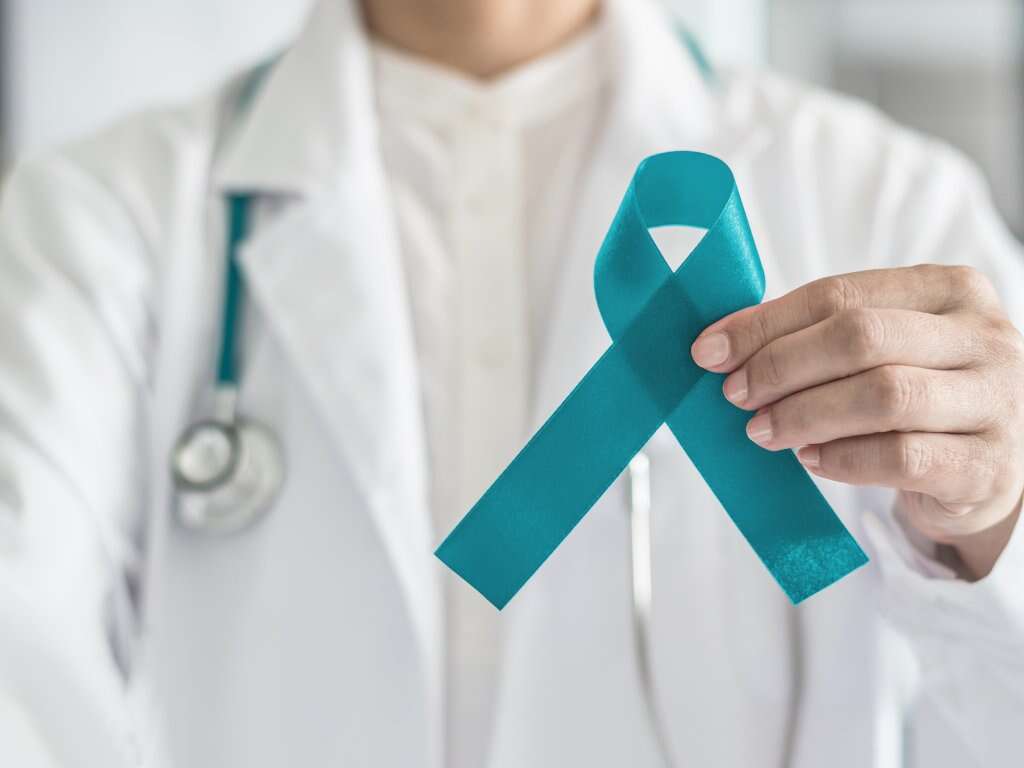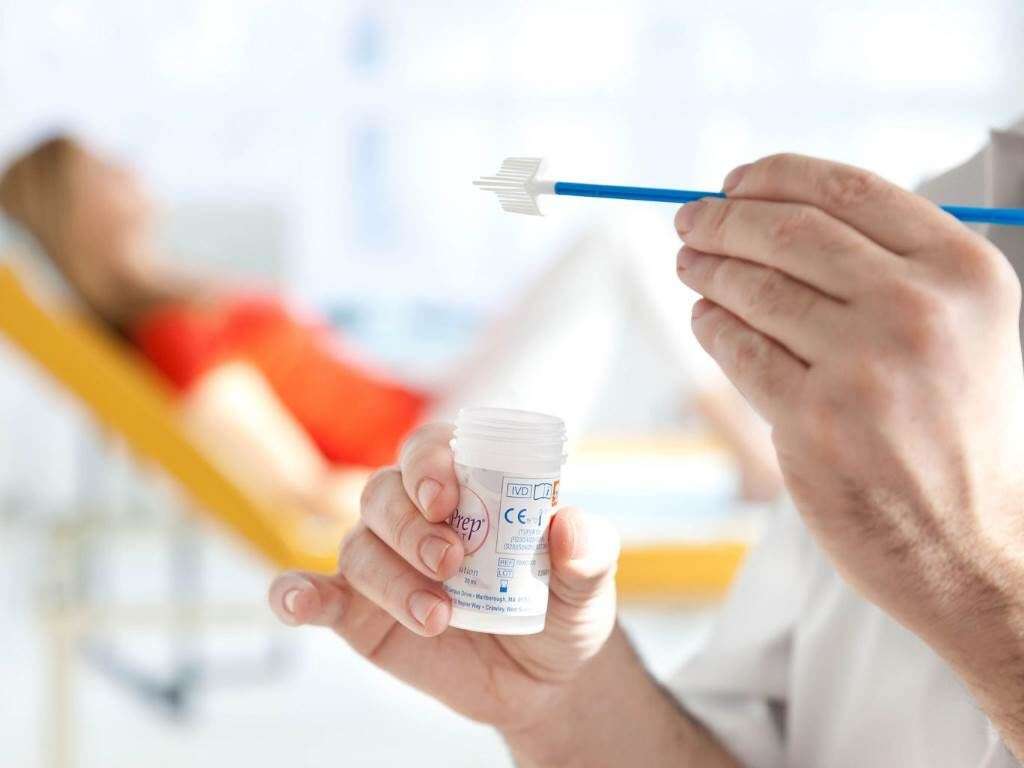10 Signs of Cervical Cancer
Cervical cancer refers to cancer that originates in the cervix of the uterus. HPV infection is the main cause associated with this disease which is the third most common malignancy in women worldwide. However, it is important to note that not all of those infected with HPV develop cervical cancer, only about 5% of patients with a HPV infection will end up with this condition.
Given the strong link between HPV infection and cervical cancer, it is very important to follow the vaccination guidelines given by the US Advisory Committee on Immunization Practices (ACIP). Like most cancer-related conditions, early diagnosis is vital for a better outcome, therefore, regular gynecological consultations are of paramount importance to detect the disease before it spreads to other organs.
The outcome is heavily related to the stage of the disease. The earlier the stage, the better the survival rate. This is why it is important to know the common signs and symptoms associated with this condition to prevent further complications.

Cervical Cancer Sign #1: Abnormal Vaginal Bleeding
This is a non-specific symptom that is well known to be related to cervical cancer. Vaginal bleeding after intercourse is a more specific sign related to this condition and it could be one of the very first signs to show up.
If you are experiencing vaginal bleeding that is not related to your normal menstrual cycle, you should seek medical attention for proper diagnosis.

Cervical Cancer Sign #2: Dyspareunia
Dyspareunia is a term that refers to painful sexual intercourse. The pain can be felt deep in the pelvis or external surface of the genitalia.
There are numerous causes of dyspareunia ranging from lack of lubrication due to hormonal causes, vaginal infection, pelvic inflammatory disease, cervical polyps, genitourinary tract infections, tissue injury, anatomic variations, cervical cancer, and others.

Cervical Cancer Sign #3: Anemia
Anemia is a condition characterized by a decrease in the total amount of red blood cells or hemoglobin in the blood. This condition produces a decrease in oxygen transport which explains the dizziness and fatigue associated with it.
In cervical cancer patients, abnormal vaginal bleeding causes a considerable loss of blood, leading to anemia.

Cervical Cancer Sign #4: Vaginal Discharge
In normal cases, vaginal discharge consists of a mixture of cells, liquid, and bacteria that helps to protect and lubricate the vagina. This mixture is produced by cells of the cervix and vagina while exiting through the vaginal opening.
For different individuals, the quality, composition, and amount of discharge varies according to the different stages of reproductive and sexual development. Normal discharge is usually watery, thin, sticky, thick, and clear. In cervical cancer, the vaginal discharge is copious, watery, pink, bloody, and can be foul smelling.

Cervical Cancer Sign #5: Dysuria
Dysuria is the medical term used to describe pain during micturition. This a non-specific symptom associated with many conditions. The pain can be mild or severe depending on the underlying condition.
In patients suffering from cervical cancer, dysuria may arise as the disease progresses and invades the bladder. Another way that this symptom appears is through compression of the ureters by the growing tumor.

Cervical Cancer Sign #6: Oliguria
Oliguria is the medical term used to describe a decrease in the urinary outflow. Many conditions may cause this symptom to appear, therefore you shouldn’t rely on this symptom alone.
As cervical cancer progresses, it can start to affect other organs. When the tumor gets too big, it can compress structures like the ureters, causing oliguria.

Cervical Cancer Sign #7: Cachexia
Cachexia or wasting syndrome occurs when there is fatigue, weakness, weight loss and/or muscle atrophy in an individual who is not actively trying to lose weight. Cachexia can be seen among patients with celiac disease, acquired immune deficiency syndrome (AIDS), chronic obstructive pulmonary disease (COPD), rheumatoid arthritis, multiple sclerosis, cancer, and more.
Patients suffering from cervical cancer may lose weight as the disease progresses, therefore this symptom, when seen in cancer patients, signals a poor prognosis.

Cervical Cancer Sign #8: Leg Edema
Edema is defined as the abnormal accumulation of fluid in the interstitium causing pain and swelling. Edema can be referred to as “pitting” when there is persistent indentation after pressure is applied and released on an area. Edema can be caused by pregnancy, varicose veins, heart failure, dermatitis, thrombophlebitis, lipedema, lymphedema, myxedema, and more.
In cervical cancer, the presence of leg edema suggests that there is vascular or lymphatic obstruction caused by the growth of the tumor. If you are experiencing this symptom and other symptoms related to cervical cancer, you should seek medical attention as soon as possible.

Cervical Cancer Sign #9: Hematuria
Hematuria refers to the presence of red blood cells in the urine. It can be divided into gross or microscopic hematuria. Gross hematuria can be seen by the naked eye while microscopic hematuria can only be detected through a urine dipstick or urinalysis.
Hematuria can occur when the kidneys or urinary tract are affected. In cervical cancer, the growth of the tumor along the epithelial surface can invade the bladder and rectum causing constipation, hematuria, fistula, and more.

Cervical Cancer Sign #10: Constipation
Constipation occurs when the bowel movements are hard or infrequent. The stool can be hard and dry. Other associated symptoms of constipation include bloating and abdominal pain. The complications of constipation include fecal impaction, hemorrhoids, and anal fissure.
In advanced cases of cervical cancer, the disease can invade the rectum, causing this symptom to appear. If you are suddenly experiencing a change in your bowel movement habits, you should seek medical attention for proper diagnosis.










